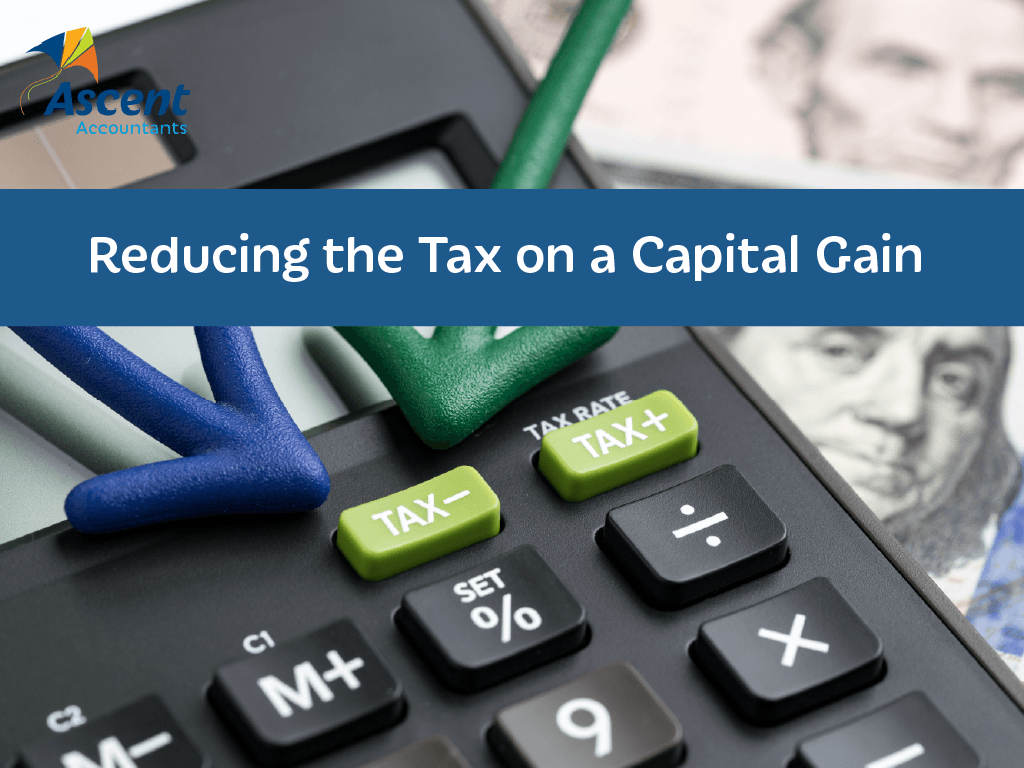Reducing the Tax on a Capital Gain

CGT explained
If you sell a capital asset, usually real estate or shares, you’ll make a capital gain or a capital loss. This is the difference between what it cost you to buy the asset and what you receive when you sell it. In other words, buy price – sell price = your capital gain or loss.
When you make a gain, it’s added to your income (under Other Income). As tax is not withheld for capital gains, this may significantly increase the tax you need to pay.
Reducing your CGT
With the possibility of your payable tax substantially increasing, you’ll probably look for ways to reduce the CGT. There are two ways you can do this.
Balance your capital gain with a capital loss.
As we’ve covered, capital losses occur when you sell an item for less than you paid for it. It can be any asset (not necessarily the same type of asset), and can stay in your ATO records to be used against a future capital gain. For example, many people intentionally sell shares at a loss just to offset their capital gain (trickier than it sounds — but we can help if needed) because it’s more cost-effective in the long run. Who would’ve thought a financial loss could come in handy?
Reduce your overall taxable income through tax deductions.
The easiest way to do this is by making a personal concessional superannuation contribution. With the annual contribution cap rising to $27,500 by July 1 (previously $25,000), there’s more scope for reducing your CGT this way. You can also reduce your taxable income by prepaying up to 12-months of business expenses in the financial year.
Reducing tax payments is kind of our thing
Every year, we help hundreds of individuals and business owners reduce their tax — including the Capital Gains Tax. Talk to us if you’d like our experienced team to explore reducing yours.
Need help with your accounting?








